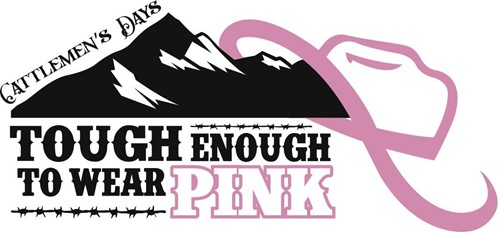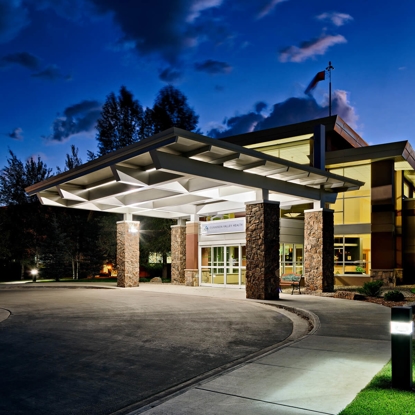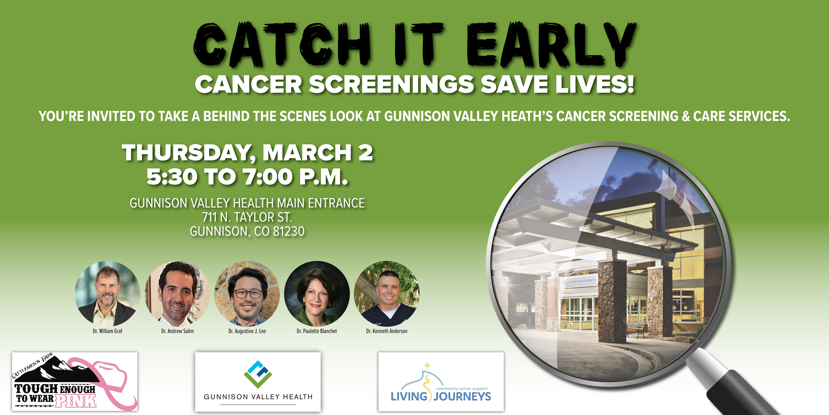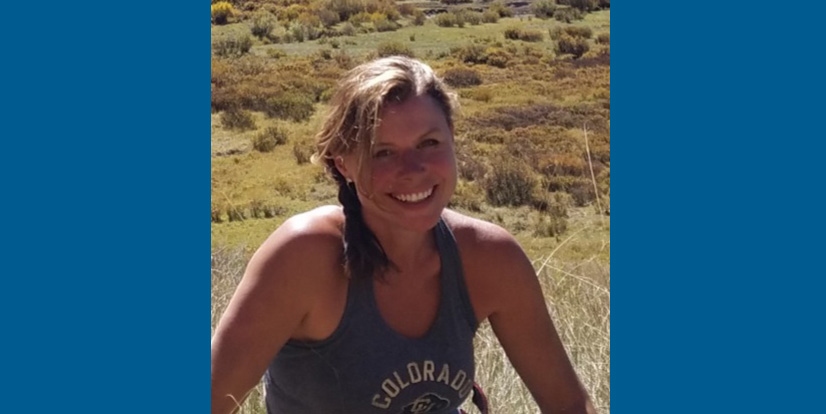Comprehensive screening for dense breast tissue.
Breasts are made of fat and breast tissue. When there is more breast tissue than fat, breasts are considered to be dense. Having dense breast tissue is normal; it is a part of you, like having green eyes or brown hair. Dense breast tissue is common; 40% of women have dense breast tissue. Here in the Gunnison Valley, it is even more common; more than 50% of women have dense breast tissue. Having dense breast tissue may also increase the risk of developing breast cancer 4 to 6 times.
ABUS screenings use sound waves to create 3D pictures of the breast tissue. This allows radiologists to look through hundreds of breast tissue image "slices", looking at layers of dense tissue to find breast cancers which may have been missed on a mammogram. This is different than routine ultrasound of the breasts since the images from ABUS allow physicians to review volumes of data which may result in the ability to detect more breast cancers.
ABUS screenings + mammography increases cancer detection.
Breast density is determined by the radiologist who reads your mammogram. On a mammogram, dense tissue and masses both appear white, so a suspicious lump may be hidden in dense tissue. When dense tissue is scanned with the ABUS, tissue appears white and masses appear black – making them easier to see.
It is important to know that the recommendation for an ABUS screening doesn't mean that the radiologist identified any areas of concern on your mammogram. ABUS screenings are supplemental screenings recommended for women with dense breast tissue.
Do you have questions about breast density?
Take a look at our breast density information sheet.
Identifying the right care based on your unique needs.
There are a number of factors that the radiologist considers when recommending supplemental breast screenings. Generally speaking,
- Women with dense breast tissue and a high lifetime cancer risk are recommended to receive a breast MRI as a supplemental screening. Your lifetime cancer risk is calculated based on a number of factors including your cancer history and familial cancer history.
- Women with dense breast tissue and a low lifetime cancer risk are recommended to receive an ABUS screening as a supplemental screening.
Each person is unique and our radiology team will evaluate each person's needs based on their specific medical history.
Partnership with Cattlemen's Days Tough Enough to Wear Pink
 Funding for our Invenia ABUS 2.0 machine was generously donated by
Cattlemen's Days Tough Enough to Wear Pink. Tough Enough To Wear Pink is committed to ensure that all residents in
the Gunnison Valley and Hinsdale counties have access to comprehensive
breast screening services. If you do not have insurance, let our admissions
team know and support from Tough Enough to Wear Pink and the Gunnison
Valley Health Foundation is available.
Funding for our Invenia ABUS 2.0 machine was generously donated by
Cattlemen's Days Tough Enough to Wear Pink. Tough Enough To Wear Pink is committed to ensure that all residents in
the Gunnison Valley and Hinsdale counties have access to comprehensive
breast screening services. If you do not have insurance, let our admissions
team know and support from Tough Enough to Wear Pink and the Gunnison
Valley Health Foundation is available.
To schedule an appointment or for more information contact the Gunnison Valley Health Radiology Department at (970) 641-7253.
-

-
Excellent Radiology Technician Radiology
“The Radiology Technician was excellent in helping me to move slowly and carefully in order to avoid pain. She was very gentle ...
-Submitted by Anonymous -
Pleasant Mammography Experience Mammography
"Lovely, welcoming people at the front desk. Everything was ready to go when I arrived. Most pleasant place I’ve ever had ...
-Submitted by Anonymous -
Added to my Comfort Radiology
Staff person conducting the MRI provided a warm blanket to add to my comfort during the procedure. He did an excellent job of ...
-Submitted by Anonymous -
Can't Say Anything Negative Radiology
Staff was truly professional and knowledgeable during my imaging procedure. Can't say anything negative!
-Submitted by Anonymous -
So Grateful Radiology
The service from every person involved was incredible. I am so grateful for each person on the team.
-Submitted by Anonymous -
Highly Trained Staff Radiology
Staff was highly trained providing excellent care.
-Submitted by Anonymous












